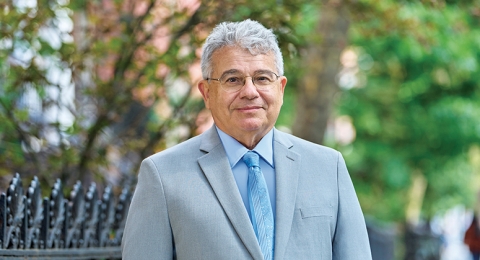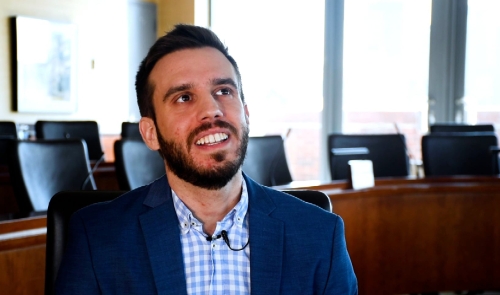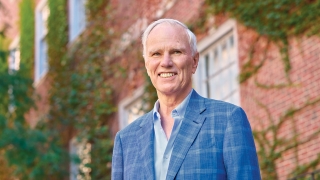Become a part of the broadest, most diverse and dynamic program in international law and global governance of any school in the world.
Faculty
More than 15 full-time professors comprise our core international and comparative law faculty, unsurpassed in the depth of their knowledge and engagement. Our Global Faculty—celebrated scholars in their home countries invited to teach at NYU—and New York practitioners augment this deep bench of expertise.
Our professors teach and research in:
| Chinese and East Asian Law Comparative Constitutional Law EU Law and Regional Integration Global Governance and Administrative Law Global Law and Tech History of Int'l Law Human Rights and Int'l Criminal Law Int'l Climate, Environmental and Energy Law | Int'l Legal Theory Int'l, Regional and Bilateral Trade Int'l/Transnational Litigation and Arbitration Investment and Investor-State Arbitration Law of War and Post-Conflict Reconstruction Law and Development Transitional Justice UN and Int'l Organizations Law |
The Program
Flexible Curriculum
You'll build expertise in several different areas of international, comparative, and global law to equip yourself to deal with cross-cutting issues that call for innovative approaches. Your professors will help you explore your intellectual interests within this broad field, and define the direction of your future professional development.
Special Programs
Three of our centers and institutes offer special programs for students in particular areas of international and comparative law:
- Transitional Justice Leadership Program
- Human Rights Scholars Program
- Salzburg Cutler Fellowship
- USALI Student Scholars Program
Clinics, Colloquia, and Research Opportunities
You can apply to gain hands-on experience in our clinics and externships. In our colloquia, you'll be exposed to emerging scholarship and engage with authors writing about today's issues. This year, there are five courses of each type for students in this specialization.
You also can develop your scholarship in close consultation with a professor. Writing opportunities include: a paper for a class, an independent research project, or this degree's 4-credit thesis option. The annual International Law and Human Rights Emerging Scholarship Conference features students' writing.
A significant number of our centers and institutes do impactful work in international and comparative law; they convene a calendar events and organize programs for students. Student groups and journals connect JDs and LLMs with common interests.
Centers and Institutes
Bernstein Institute for Human Rights
Center for Transnational Litigation, Arbitration, and Commercial Law
Center for Human Rights and Global Justice
Guarini Institute: Global Law and Tech
Institute for International Law & Justice
Jean Monnet Center for International and Regional Economic Law & Justice
NYU Center for Cybersecurity
Reiss Center on Law and Security
US-Asia Law Institute
Student Groups & Journals
Africa Law Association
Asia Law Society
International Arbitration Association
International Law Society
International Refugee Assistance Project
Journal of International Law and Politics
Law Students for Economic Justice
National Security Law Society
Faculty Insight
Watch: Professor Philip Alston, who teaches international human rights law, talks about incorporating his human rights work into his classes.
Meet the 2025-26 Faculty Director

José Enrique Alvarez
Herbert and Rose Rubin Professor of International Law
Professor Alvarez’s six books and over 150 shorter works have made substantial contributions to a wide range of topics in international law, including the law-making aspects of UN system organizations, the challenges facing international criminal tribunals, the elusive boundaries between “public” and “private,” the legitimacy deficits and reform prospects for the international investment regime, and the failings of global health law. Read more about Professor Alvarez



